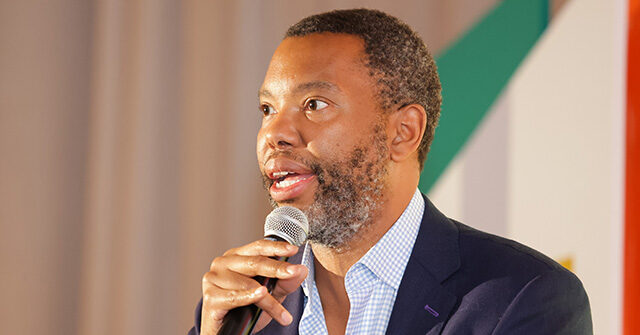A recent interview on CBS Mornings featuring author and activist Ta-Nehisi Coates has sparked controversy regarding the editorial standards of the network after reporter Tony Dokoupil posed pointed questions about Coates’ criticisms of Israel. In promoting his new book, “The Message,” Coates voiced strong criticisms of Israel, accusing it of practicing a form of apartheid in its treatment of Palestinians. Dokoupil, who has a personal connection to Israel through his family, engaged Coates in a dialogue that raised challenging issues regarding his narrative, questioning why an author of Coates’ stature would present an account that seemingly ignored the complexities faced by Israel. This clash between a journalist’s obligation to probe tough issues and a guest’s perspective on a deeply sensitive topic echoes broader debates surrounding media representations and biases.
Dokoupil’s interview included pointed remarks that suggested Coates’ framing of Israel’s actions might align with extremist views if his identity as a celebrated author were stripped from the equation. He challenged Coates on the omission of important context, such as Israel’s precarious situation amidst hostile neighbors and the acts of violence from terror groups, querying whether this omission implied a denial of Israel’s right to exist. Coates contended that his book does not aim to encapsulate every facet of the Israeli-Palestinian conflict but intends to highlight particular themes. His assertion reflects a common stance among critics who see the plight of Palestinians as a narrative that has not needed equal representation in mainstream media.
Their exchange intensified as Dokoupil pressed Coates about what he perceived as the delegitimization of Israel’s foundational tenets, fundamentally questioning what about a Jewish state might offend Coates. Coates responded, clarifying that it was not the existence of a Jewish state that troubled him, but rather any state that operates on ethnocratic principles. This distinction raised broader inquiries about nationalism and the criteria by which states are deemed legitimate or illegitimate, revealing the intricacy of global politics and identity. His perspective illustrates the complex emotional and historical narratives both sides of the Israeli-Palestinian conflict carry, highlighting how discussions around national narratives can often be fraught with tension and misunderstanding.
Following the interview, CBS News executives Wendy McMahon and Adrienne Roark issued statements critiquing Dokoupil’s line of questioning, suggesting it did not align with the network’s editorial standards. They emphasized the importance of maintaining objectivity in reporting while acknowledging the need for accountability in journalistic practices. This response indicates an internal struggle within CBS regarding how to balance principled journalism with the risk of introducing perceived bias when grappling with contentious global matters. Roark articulated a commitment to objectivity, reinforcing CBS News’s aim to present news without favoritism, while suggesting, implicitly, that Dokoupil’s questioning potentially strayed from that ideal.
In contrast, CBS’s chief legal correspondent, Jan Crawford, expressed confusion over the complaints against Dokoupil’s interview, asserting that journalistic integrity calls for challenging one-sided narratives to present a more nuanced understanding of complex issues. Crawford’s assertion that it is the role of journalists to interrogate simplistic or biased views aligns with conventional tenets of good journalism, underscoring an unambiguous commitment to revealing multi-faceted truths rather than reinforcing prevailing sentiments. This internal discord within CBS News exemplifies an ongoing debate within the media landscape about how best to navigate divisive issues while providing responsible coverage.
Ultimately, the incident encapsulates larger discussions on media portrayal of international conflicts, the balance between maintaining editorial standards, and the expectation for contemporary journalists to engage critically with the content presented by interviewees. The implications of what it means to adequately cover sensitive topics like the Israeli-Palestinian conflict reflect broader societal challenges in understanding and engaging with complex narratives that often carry deep-seated historical grievances and emotional weight. As media organizations grapple with these issues, Dokoupil’s questions reveal not only the limitations of individual narratives but also the responsibilities that journalists bear in navigating these fraught discussions through a lens that aspires to truth and accountability.

